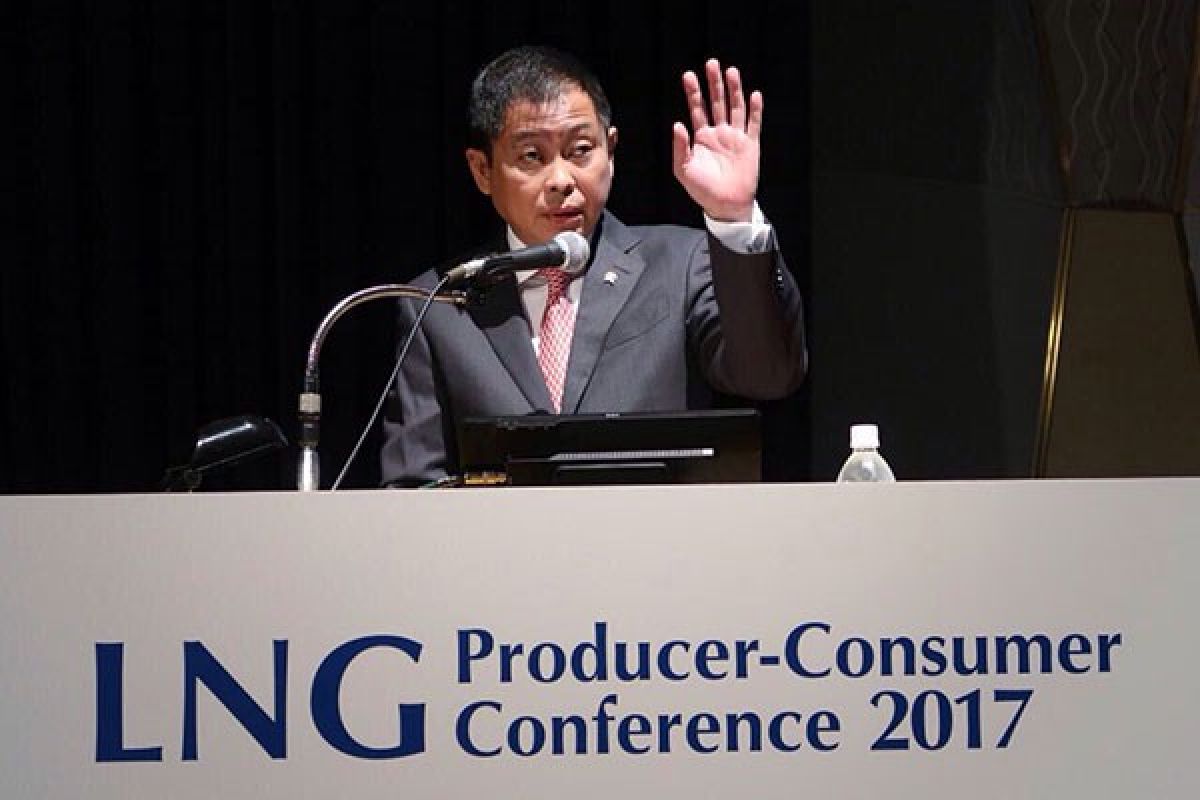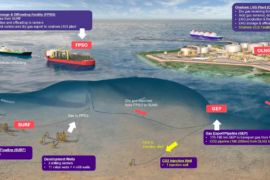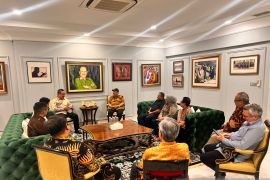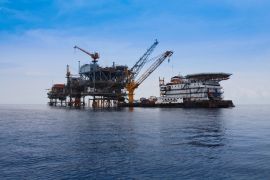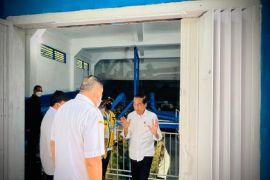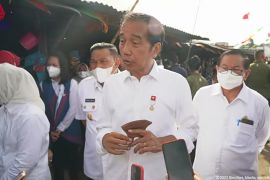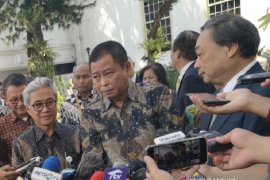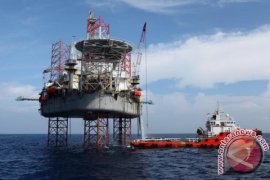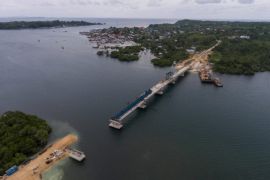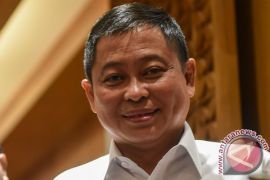The agreements were made after Minister Jonan met with Japans Inpex Corp. CEO Toshiaki Kitamura in Tokyo on Tuesday, according to a press release from the Ministry of Energy received here on Thursday.
The three agreements include the governments stance to urge Inpex to develop the LNG refinery project onshore in line with President Joko Widodos directive.
Secondly, the government will extend Inpexs contract for 20 years and add seven more years to compensate for changing the project from offshore to onshore.
Thirdly, the Indonesian government will offer Inpex the freedom to determine the location of the refinery project.
"The decision to extend the contract with Inpex to 20 years was made, as the current contract will expire soon. The seven additional years have been given to compensate for changing the scheme from offshore to onshore project," Minister Jonan said after meeting with Kitamura.
Currently, Inpex is conducting a "pre-front end engineering design" (pre-FEED) of Masela after receiving a work order from SKK Migas, the oil and gas regulatory agency.
Following Minister Jonans visit on May 16, 2017, a pre-FEED agreement was reached with an option of production capacity and an island.
Based on the order, it was stated that the capacity of the LNG refinery was set at 9.5 million tons per year and gas pipe production at 150 million cubic feet per day.
Pre-FEED is an important stage for formulating a revision of the Plan of Development (PoD).
The revision of PoD is being conducted to increase the LNG production capacity when the project is still to be carried out offshore.
The Masela Block contract, signed in 1998, is managed by Inpex, as the operator, with a 65 percent stake, and Shell Upstream Overseas Services, with a 35 percent stake.
The Indonesian government is optimistic that Inpex would immediately start the development project.
During the work visit to Japan, Minister Jonan, at a meeting with LNG Japan Corporation on Monday, said Indonesias gas purchase policy was a longer contract with a fixed volume.
"The minister said that we will avoid as much as possible a split cargo. PT Pertamina (state-owned oil and gas company) will discuss the gas purchase in further detail. Indonesias main gas policy is meeting the domestic demand and only export after it is met," Dadan Kusdiana, the energy ministrys spokesman, noted.
During the meeting with LNG Japan, Minister Jonan also called for detailed discussion with SKK Migas to reduce the cost of the LNG Tangguh project and LNG Benoa with regard to its high shipment cost, calling for efforts to reduce the price immediately.
During a meeting with Tokyo Gas on Tuesday (Oct 17), the company sought the Indonesian governments support for its LNG study in Sulawesi, including regulatory support to boost the gas business.
Tokyo Gas is currently studying LNG in Sulawesi and is committed to accelerating the completion of its study.
"Tokyo Gas plans to develop LNG refineries in Indonesia and is currently conducting a study in Sulawesi. Along with Pertamina, they are also currently conducting a LNG development project in Bojonegara, Banten. At the meeting with Tokyo Gas, the minister again emphasized the importance of efficiency," Dadan said.
Minister Jonan also told Tokyo Gas that the LNG purchase deal should be made under a long-term contract, and that the gas company will not only develop infrastructure but also generate power.
"The challenge is the high transportation cost in eastern Indonesia. To make the cost more efficient, the minister has urged to develop the power plant near an energy source or well," he said.
On Wednesday (Oct 18), the minister will be the key speaker at the LNG Producer Consumer Conference 2017.
He will shed light on sustainable LNG development in Indonesia.
The LNG Producer Consumer Conference 2017, held by Japans Ministry of Trade and Industry and the Asia-Pacific Energy Research Center, is themed "Opportunities in LNG Markey Driven Innovation" and aims to increase the knowledge of global LNG market trends and development.
The conference was attended by more than a thousand participants from government offices, business entities, and research institutes.
Reported by Kelik Dewanto
(H-YH/INE)
EDITED BY INE/a014
(TZ.SYS/B/KR-BSR/A014)
Editor: Aditia Maruli Radja
Copyright © ANTARA 2017
